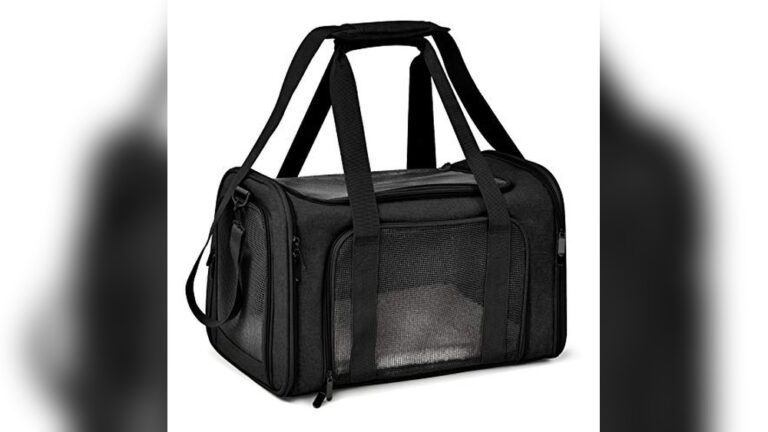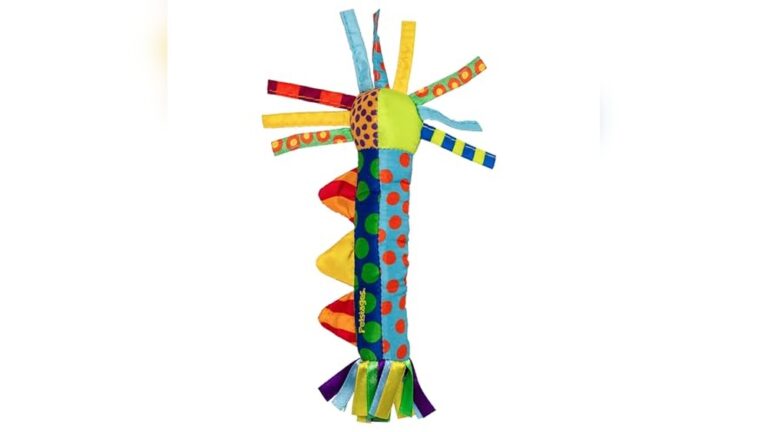Why Does My Dog Suck On Blankets?
Dogs have quirky habits. One of them is sucking on blankets.
This behavior can puzzle many pet owners. Dogs suck on blankets for various reasons. It can be a sign of comfort, stress relief, or even a leftover habit from puppyhood. Some dogs find it soothing, like how a child uses a pacifier.
Understanding why your dog does this can help you address any underlying issues. It can also strengthen the bond you share. By exploring the reasons behind this behavior, you can better meet your dog’s needs. So, let’s dive into the world of canine blanket-sucking and uncover what it means for your furry friend.
Common Canine Behavior
Dogs exhibit various behaviors that might seem strange. One common behavior is sucking on blankets. Understanding why your dog does this can help you address their needs. Let’s explore this common canine behavior.
Instinctual Actions
Dogs have instincts inherited from their wild ancestors. Sucking on blankets often mimics the act of nursing. Puppies suckle their mothers for nourishment and comfort. This behavior can continue into adulthood. It provides a sense of familiarity.
Comfort And Security
Blanket sucking can be a self-soothing behavior. Dogs find the action calming, much like a child with a pacifier. The texture of the blanket can remind them of their mother’s fur. This gives them a feeling of safety.
Some dogs develop this habit during stressful times. Changes in the environment can trigger anxiety. Sucking on a blanket helps them cope. It becomes a comforting ritual.
Nursing Reflexes
Dogs often suck on blankets due to nursing reflexes. This behavior starts early in a puppy’s life. It is a natural and comforting action for them.
Puppy Habits
Puppies are born with strong nursing instincts. They suckle from their mother for milk. This habit provides nutrition and comfort. Puppies feel safe and warm while nursing.
Blanket sucking mimics this behavior. The texture and warmth of the blanket remind them of their mother. This makes the blanket a comforting object.
Weaning Process
The weaning process begins as puppies grow older. They start eating solid food. Yet, the nursing reflex does not disappear immediately. Puppies continue to seek comfort through sucking.
Some dogs carry this habit into adulthood. They turn to blankets for a sense of security. The soft fabric feels familiar and soothing.
Understanding these behaviors helps owners. It allows them to provide better care for their pets. Knowing the reasons behind blanket sucking can also prevent unnecessary worry.
Anxiety And Stress
Many dog owners notice their pets sucking on blankets. This behavior often ties to anxiety and stress. Dogs, like humans, can feel anxious or stressed. They may show this through different actions, including sucking on blankets. Understanding the causes can help address this behavior effectively.
Separation Anxiety
Separation anxiety is a common issue in dogs. They feel anxious when away from their owners. Dogs are social animals and crave companionship. When left alone, they may feel abandoned. This anxiety can lead to blanket sucking. It provides comfort and mimics nursing, which soothes them.
Environmental Stressors
Environmental stressors can also trigger blanket sucking. Loud noises, new places, or changes in routine can stress dogs. These stressors can make them seek comfort in familiar items. Blankets often carry their owner’s scent, making them a source of reassurance. Identifying and reducing these stressors can help alleviate the behavior.
Breed Tendencies
Dogs have various habits that can sometimes baffle their owners. One such behavior is sucking on blankets. While several factors might cause this, breed tendencies play a significant role. Different breeds exhibit unique characteristics and behaviors. Understanding these can help explain why your dog sucks on blankets.
Breeds Prone To Sucking
Some dog breeds are more likely to suck on blankets. This habit is often seen in breeds known for their strong attachment to their owners and need for comfort. Breeds such as Doberman Pinschers, Siamese cats, and Dachshunds often exhibit this behavior. These breeds are known for their affectionate nature and close bonds with their human families.
Inherited Traits
Inherited traits also contribute to this behavior. Many dogs suck on blankets because of traits passed down from their ancestors. Certain breeds have a strong instinct for suckling, even after they are no longer puppies. This instinct can be linked to their need for comfort and security.
For example, Doberman Pinschers are known to have a strong suckling instinct. This trait can be traced back to their early development stages. Similarly, Dachshunds have a strong desire for comfort, often seeking out soft objects like blankets to suck on. These inherited traits play a significant role in this behavior.
Health Considerations
Understanding why your dog sucks on blankets can be puzzling. One important aspect to consider is your dog’s health. Various health factors could influence this behavior. Let’s explore some key health considerations.
Nutritional Deficiencies
Dogs may suck on blankets if they lack essential nutrients. This behavior could signify a nutritional deficiency. Ensure your dog receives a balanced diet. Here are some common deficiencies:
- Iron – Vital for blood health.
- Calcium – Important for bones and teeth.
- Vitamins – Essential for overall well-being.
Consult with a vet to confirm if your dog’s diet meets its needs. A vet-recommended supplement might be necessary.
Medical Conditions
Medical conditions can also trigger blanket sucking. Some conditions include:
| Condition | Description |
|---|---|
| Anxiety | Dogs might suck blankets to soothe themselves. |
| Dental Problems | Pain in the mouth can lead to sucking behavior. |
| Gastrointestinal Issues | Stomach discomfort might cause blanket sucking. |
If you observe this behavior, a vet check-up is essential. Addressing underlying issues can improve your dog’s comfort.
Behavioral Training
Dogs suck on blankets for many reasons. Behavioral training can help address this habit. By using positive techniques, you can guide your dog to better behavior. This section will cover positive reinforcement and redirecting actions.
Positive Reinforcement
Positive reinforcement helps shape your dog’s behavior. Rewarding good behavior encourages them to repeat it. This method works well for teaching dogs new habits.
Use treats, praise, or toys as rewards. For example, give your dog a treat when they stop sucking on the blanket. This helps them associate good behavior with rewards. Be consistent with your rewards to see better results.
Here is a simple table to show reward examples:
| Action | Reward |
|---|---|
| Stops sucking on blanket | Treat |
| Sits calmly | Praise |
| Plays with a toy | Extra playtime |
Redirecting Actions
Redirecting actions involves guiding your dog to a new activity. This helps them forget about sucking on blankets. Offer an alternative activity to keep them busy.
Here are some ideas for redirecting actions:
- Give your dog a chew toy.
- Engage in a game of fetch.
- Take them for a walk.
- Teach them a new trick.
These activities keep your dog mentally and physically stimulated. They also help build a stronger bond between you and your pet. Consistency is key. Over time, your dog will learn new habits and leave the blanket alone.
Comfort Items
Dogs often find comfort in certain objects. These comfort items can provide a sense of security. Dogs may suck on blankets as a way to soothe themselves. This behavior is common, especially among puppies. Understanding the reasons behind it can help you address your dog’s needs.
Favorite Blankets
Many dogs have a favorite blanket. This blanket can remind them of their mother. The texture and smell give them a feeling of safety. Sucking on the blanket can mimic the feeling of nursing. This is why puppies often do this more than adult dogs.
Alternative Comforts
Blankets aren’t the only comfort items for dogs. Some dogs prefer soft toys. Others might like a specific piece of your clothing. These items carry your scent. This can help your dog feel close to you even when you are not around. Providing these alternatives can reduce blanket sucking.
When To Seek Help
When your dog sucks on blankets, it might seem harmless. But sometimes, it can indicate a deeper issue. Knowing when to seek help is crucial. Here are some guidelines to help you decide.
Veterinary Advice
A vet can rule out medical issues. Sometimes, dogs suck on blankets due to underlying health problems. These can include nutritional deficiencies or gastrointestinal issues. Your vet can perform tests to identify any health concerns. Early diagnosis can prevent further complications.
Behavioral Specialists
Behavioral issues can also cause blanket sucking. A behavioral specialist can help identify triggers. Anxiety, stress, or past trauma might be the cause. They can provide strategies to manage and reduce the behavior. This might include training exercises or environmental changes.
Frequently Asked Questions
Why Does My Dog Suck On Blankets?
Dogs suck on blankets for comfort, similar to a child with a pacifier. This behavior can also stem from early weaning or anxiety.
Is It Normal For Dogs To Suck On Blankets?
Yes, it’s normal. Many dogs find comfort in sucking on blankets, especially if they were weaned early or have anxiety.
How Can I Stop My Dog From Sucking Blankets?
To stop this behavior, provide alternative chew toys, offer more exercise, and address any underlying anxiety or stress.
Should I Be Worried If My Dog Sucks On Blankets?
Generally, it’s not a cause for concern. However, if it becomes obsessive or leads to blanket ingestion, consult your vet.
Conclusion
Understanding why your dog sucks on blankets helps address their needs. It could be comfort, stress relief, or a habit from puppyhood. Observe your dog’s behavior. Provide alternatives like toys or chews. Consult your vet if concerns persist. Ensuring your dog’s well-being is essential.
Every dog is unique. Meeting their emotional and physical needs strengthens your bond. Thank you for reading!







